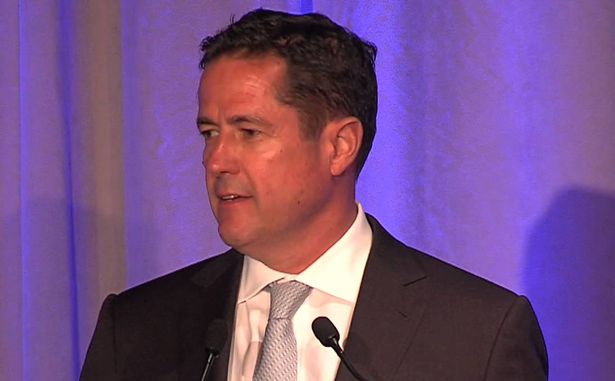-
Tips for becoming a good boxer - November 6, 2020
-
7 expert tips for making your hens night a memorable one - November 6, 2020
-
5 reasons to host your Christmas party on a cruise boat - November 6, 2020
-
What to do when you’re charged with a crime - November 6, 2020
-
Should you get one or multiple dogs? Here’s all you need to know - November 3, 2020
-
A Guide: How to Build Your Very Own Magic Mirror - February 14, 2019
-
Our Top Inspirational Baseball Stars - November 24, 2018
-
Five Tech Tools That Will Help You Turn Your Blog into a Business - November 24, 2018
-
How to Indulge on Vacation without Expanding Your Waist - November 9, 2018
-
5 Strategies for Businesses to Appeal to Today’s Increasingly Mobile-Crazed Customers - November 9, 2018
Jes Staley to be next Barclays chief — FT
Barclays PLC is preparing to name former J.P. Morgan Chase & Co. executive Jes Staley as its next CEO, as the British bank once again turns to an American investment banker for leadership.
Advertisement
His appointment is likely to be widely seen as signalling a U-turn on the anti-investment bank strategy of Mr Jenkins, who one person close to the board said “did not understand investment banking”.
Barclays offered the position to Staley, now managing partner of US hedge fund firm BlueMountain Capital Management, and he accepted the offer, according to the person.
It is the second time Barclays has approached Mr Staley about becoming its chief executive.
Barclays’ current executive chairman John McFarlane was appointed after Anthony Jenkins’ departure, until a permanent successor was found to become chief executive.
Staley, who was on the shortlist when Barclays looked for a CEO in 2012, had left JPMorgan in early 2013 after 34 years at the bank to join Blue Mountain Capital.
Shareholders are also expected to keep a keen watch on the pay package agreed for the new boss in light of previous controversies over bonuses at the bank.
Advertisement
“Jes has had a long career in banking doing a lot more than the securities business”, said Roy Smith, a professor at New York University and a former Goldman Sachs Group Inc. banker.





























